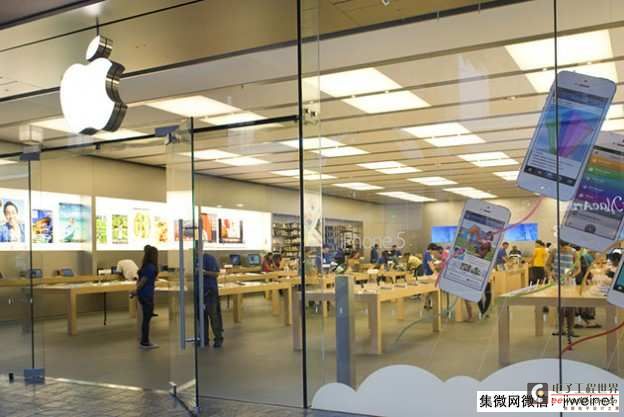Apple finally released its fourth-quarter 2015 financial results early on the 27th. Did the stock price drop in the end? The answer is no. According to Apple's latest report, the company generated $75.9 billion in global revenue (approximately NT$2.57 trillion) and a net profit of $18.4 billion (about NT$622.05 billion). Despite these strong numbers, CEO Tim Cook still feels uneasy and says he’s not sleeping well at night.

What is Cook worried about? Two key factors: mobile phones and China.
First, Apple’s mobile device sales may have hit a plateau. This quarter, the company sold 74.8 million iPhones, which was the highest growth since the iPhone’s launch, but the growth rate was less than 1%. Meanwhile, iPad sales dropped sharply by 21% compared to the same period last year. Cook also warned that the next quarter could be “difficult,†and Apple might face its first quarterly revenue decline in 13 years.
The problem might be in China. While Apple’s revenue in Japan and the U.S. declined, sales in Greater China continued to rise, making up 24% of total revenue. A foreign businessman based in Beijing, who has close ties with Apple, said, “They all hate the Chinese market because they think the rules are harsh, but in reality, they need this ‘barbaric’ but delicious meatloaf.†Without the Chinese market, Apple would have already faced a revenue decline.
During the last earnings call, Cook claimed that Apple performed very well in China, apart from media reports. However, as one of the most pro-China executives, he had to admit that economic challenges like the depreciation of the yuan and the stock market turmoil could threaten Apple’s future in the region. “The global economy is facing an unprecedented extreme situation,†Cook stated during the conference. He also noted that economic weakness was particularly evident in Hong Kong.
KGI analyst Guo Mingxi shares similar concerns. In a recent report, he suggested that the new iPhone and iPad won’t be Apple’s savior this year. He predicts that iPhone shipments in the first quarter will fall by 44.2% compared to the same period last year, and annual shipments could drop by 29.7%, reaching only 43 million units.
Cook is now trying to separate Apple from broader market issues. When asked if the smartphone market is saturated, he dismissed the idea, pointing to India as a bright spot. Apple’s shipment growth in India last season reached 76%, the best performance ever. However, according to Counterpoint Research, Apple sold 1.7 million smartphones in India for the entire year, with nearly half sold in the fourth quarter. The reason? A 50% discount on the iPhone 5s, which made it more affordable.
Apple’s pricing strategy has made the iPhone one of the most resilient devices in the market. According to ezPrice, the market price of the iPhone 5s in Taiwan fell by less than a third over two years, and even second-hand prices were higher than those in India. This shows how far Apple is willing to go to gain market share in India, even if it means breaking its usual pricing principles.
Apple controls over 90% of the profits in the mobile phone industry and is known for strict supply chain management. If Apple continues to lower prices, who will absorb the increased costs? A senior executive from a Taiwanese supplier joked, “Everyone is in my heart,†expressing helplessness.
Cixi Xinke Electronic Technology Co., Ltd. , https://www.cxxinke.com